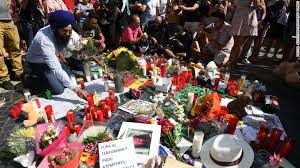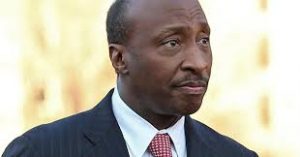The horrific terror attacks that have occurred over the last week have left many people stunned and angry. What is critical looking ahead is what message leaders of Spanish and American society will give and how each society will deal with their grief and anger.
Terror on the Ramblas
 Although we have seen it happen in Paris, Berlin, Nice, London, Madrid and other cities around the world, the reality of international terrorism becomes much more vivid when it strikes so close to home. Like many of us who live in Barcelona I have received many expressions of concern, solidarity and outrage at this latest atrocity.
Although we have seen it happen in Paris, Berlin, Nice, London, Madrid and other cities around the world, the reality of international terrorism becomes much more vivid when it strikes so close to home. Like many of us who live in Barcelona I have received many expressions of concern, solidarity and outrage at this latest atrocity.
With over 100 people injured and 15 people killed, the attacks are the worst to hit the country since the bombings in Madrid in 2004. According to Spanish television, the victims of the attacks come 34 different nationalities including French, German, Dutch, Argentines, Belgians, Peruvians, Romanians, Irish, Cubans, Greeks, English, Austrians, Pakistanis, Taiwanese, Canadians, Americans, Filipinos, Kuwaitis, Turks, and Chinese.
One result of the attack will likely be to increase the vigilance of Spain’s security forces. The next few weeks may also have a positive or negative impact depending on the talent of the political leadership in Barcelona and Madrid. On the one hand, the attacks may serve to draw people together across the country and change the dynamic that has o focused on what draws them apart. On the other, the attacks might fan the flames of anti muslim sentiment and make it more difficult than ever for Spain to fully integrate its immigrant community.
Nazis en Virginia

In Charlottesville Virginia, the terrorist who drove his car into a crowd of people was a member of an extremist, right wing group who apparently was frustrated after local police disbanded a rally and counter rally in the city. He was part of an organized protest against the scheduled removal of a statue of Robert E. Lee in a park and included a number of groups on the right including a reportedly small number of American Nazis and white supremacists like himself. Heathen Heyer, the woman who was killed, had gone to a counter rally organized by liberal groups to protest the presence of the Nazis and their ilk. The police broke things up when the groups started fighting with each other using clubs and pepper spray.
After the tragedy Donald Trump made reference to violence on both sides appearing to see no difference between the two groups and deliberately not referring to the attacker as a terrorist and not explicitly condemning the extremist groups and their tactics. Two days later he did read a prepared statement to that effect but then went back to saying it was a problem of both sides in press conference the next day.
The fundamental issue in Charlottesville is not about whether the country should or should not move or remove statues but about the role of violence and hate in the political process.
People can disagree about the importance of different historical figures and how to balance such symbols with modern morality in a multi ethnic community. What should not be allowed is to hold torch light parades, bring automatic weapons to protests or to glorify mass murder.
Since the American constitution protects the right of free speech, it is up to the leaders of civil society to speak out and denounce evil when it crops up. If an elected President can not or will not do so, then he becomes part of the problem and other voices from politics, religion, and even business will have to fill the void.

In yet another blow to Trump’s failed presidency his lack of moral leadership over Charlottesville provoked a number of CEOs to resign from two advisory bodies he had organized. Kenneth Frazier of Merck was the first to resign and it seems that many of not all of the others were planning to quit when Trump disbanded the two groups.
As Edmund Burke said in the 1700s, “the only thing necessary for the triumph of evil is for good men to do nothing”. At least the American business community is starting to act. Charlottesville may serve as an inflection point which brings people closer together and starts to heal some of the critical divisions in the country or might also serve as the first step into a decent into a very dangerous place. Again, the outcome is a question of leadership.

